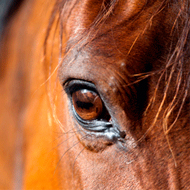
Document to provide relevant information to food business operators at slaughterhouses
The Food Standards Agency has announced a proposal to introduce a model food chain information (FCI) document for equines, to provide relevant information to food business operators at slaughterhouses.
The FCI document would be used to help ensure that equines do not enter the food chain if they have been treated with veterinary medicinal products not authorised for use in animals destined for human consumption. The document would also confirm that if veterinary medicinal products have been used, withdrawal periods have been observed.
It is the responsibility of food business operators at slaughterhouses to request, receive, check and act on FCI for all animals sent for slaughter for human consumption. FCI has been introduced progressively for all animal species as required by EU Regulation, but it has not yet been introduced for equines in the UK because the horse passport was considered to provide the necessary information.
However, the FSA has been concerned about reports that horses are being traded with false documentation when they are presented for slaughter and has evidence to support the reports. As a result, this new proposal is intended to help overcome the difficulties that have arisen with reliance on the horse passport as the sole means of identifying equines presented for slaughter for human consumption.
The FSA are now inviting comments on the introduction of FCI for equines, together with any details of financial impact this it is considered this might have. The closing date for comments in Friday, 13 June and, subject to the outcome of the consultation exercise, the requirement for FCI to accompany equines for slaughter is intended to come into effect as soon as possible.
A copy of the model document can be found on the FSA website



 The RCVS has announced a new version of its 1CPD mobile app, with enhanced features for veterinary surgeons and veterinary nurses to record their continuing professional development.
The RCVS has announced a new version of its 1CPD mobile app, with enhanced features for veterinary surgeons and veterinary nurses to record their continuing professional development.